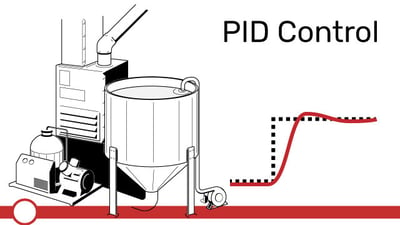New OptoU online training series covers PID in PAC Control
The instructors/engineers at OptoU are kicking off the new year with some exciting new PAC Control training lessons. Based on feedback and popular demand, we’ve released a new series in Opto 22’s online training that covers everything related to PID control.
A proportional-integral-derivative (PID) control loop monitors an input, or process variable, compares the variable’s current value to a desired target value (the setpoint), and dynamically calculates the appropriate output value required to drive the variable to its setpoint safely.
Where would a PID control loop be used? A common commercial example would be your car’s cruise control. But, in industrial automation, you might think about these possible scenarios:
- A pump maintaining a tank level
- A heater maintaining the temperature of a room
- A compressor maintaining tank pressure
If you want to learn more about building these very useful control mechanisms in PAC Control, set aside about 45 minutes and dive into the PID Control training series.
You will learn how to assess if a PID control algorithm is practical for your system and how to configure one to meet your needs.
Topics include:
Overview
- PID Concepts
- PIDs on groov I/O and SNAP PAC I/O Units
Setting Up a PID
- Configuring a TPO PID Loop
- Programming a TPO PID Loop
- Configuring a PID Loop Using Analog I/O
- Calculating the Scan Rate, P, I, and D Terms
Help with Tuning a PID
- Working with PIDs in Debug Mode
- PID resources
New to OptoU?
 Registration is free and all online classes include:
Registration is free and all online classes include:
- The same curriculum that’s used in our factory classroom training.
- Step-by-step lessons with both video and text instructions
- A user log in that allows you to return to previous lessons as well as check your knowledge with end-of session quizzes.
- And did we mention it’s free?
We hope these new PID Control lessons are the first of many learning paths you take!


